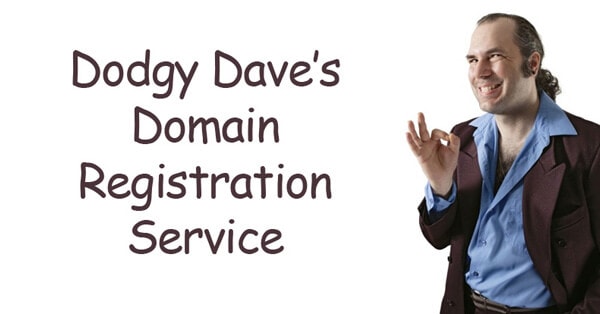We do come across some interesting ideas in this world of web design. Certainly other designers and hosts can be awkward, putting up barriers when clients want to move. I’m sure that not all of them do it out of self-interest or dangerous business tactics, some just don’t completely understand what they’re doing. In this post I’ll take you through three things to check on your website to avoid problems down the line.
1. Check the Registrant
An easy mistake for people to make if they haven’t registered domains for clients before but also a sneaky tactic to hold you ransom.
The registrant is who owns your domain name. Pop along to a site like DigDNS and put your domain name in the search bar (that’s the something.co.uk bit, miss out http:// and www. and any slashes).
You will see a box appear containing “WhoIs Results” and near the top should be Registrant or Registrant Name. This should be your name or the name of your business (unless you’ve opted for WhoIs privacy, but then you should know that’s the case).
Some designers will register the domain in their name, and sometimes this is a genuine mistake. But not always. They may be thinking that if you ever want to cancel your services with them, they will be able to turn around and hold you ransom by saying that they own the domain name.
Most of the time they are wrong, if it’s a .co.uk you can go along to Nominet and use their free domain dispute resolution service and, if you can show that it’s your trading name then you can prove that it should be yours.
You should be successful if your domain name is something like fredbloggsplumbing.co.uk but you’ll have a tougher argument if it’s kentplumber.co.uk – that can be shown to be generic rather than a trading name.
Also bear in mind, what is happening to your website and email while this dispute is going on?
Check your WhoIs record now and if it’s registered in someone else’s name, get it resolved while you’re on good terms. If they object, sound the alarm bells.
fairly marvellous always register domains in the client’s name.
2. Check the Copyright
Is there a Copyright or © symbol on your website pages?
Does it have your name next to it?
If not, why not? We’ve also seen this, when the designer will tell their soon-to-be-ex-client that they own the copyright to all their content.
This can be a slow and more expensive one to resolve. After all, photographers own the copyright on your wedding photos, remember.
All fairly marvellous website content belongs to the client, even if we write it for them.
3. Beware the Lease
This is an old trick outfits like Yellow Pages used to play, but we’re seeing it pop up from smaller, local designers now, and it’s potentially the most dangerous.
You see a fantastic monthly deal, where all the design, hosting, “SEO” and everything is included. Great, sounds like one of our packages.
But it’s not.
You are leasing the site.
So what happens if you want to change host or designer, for whatever reason? Fantastic, when you signed up, they told you you’ve got no contract or commitment.
Because it belongs to them. To sell to the highest bidder, along with your content, ranking and incoming email.
You work hard to build up your reputation and business, what happens if a competitor offers more money to take over your site?
All fairly marvellous packages are monthly payments to pay for your website, not to lease it.
The Safe Option
If you already have a website, the sooner you check these potential pitfalls the better. If your relationship with your designer is good, there should be no problem fixing them.
If you are looking to commission a new website, make sure you check these issues before you sign on the dotted line. Perhaps check out a couple of sites in the designer’s portfolio to see if you can spot the tricks.
Or just come straight to fairly marvellous, because we treat every new website as a relationship, not a project.




